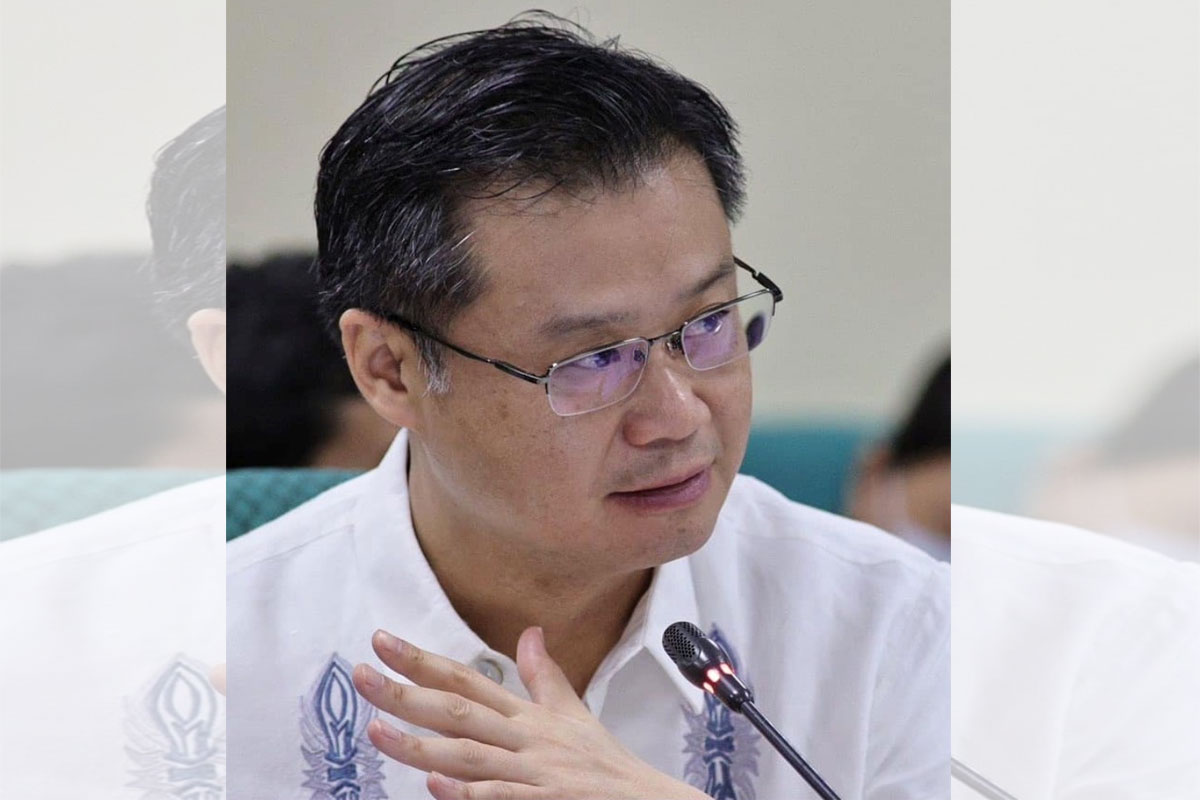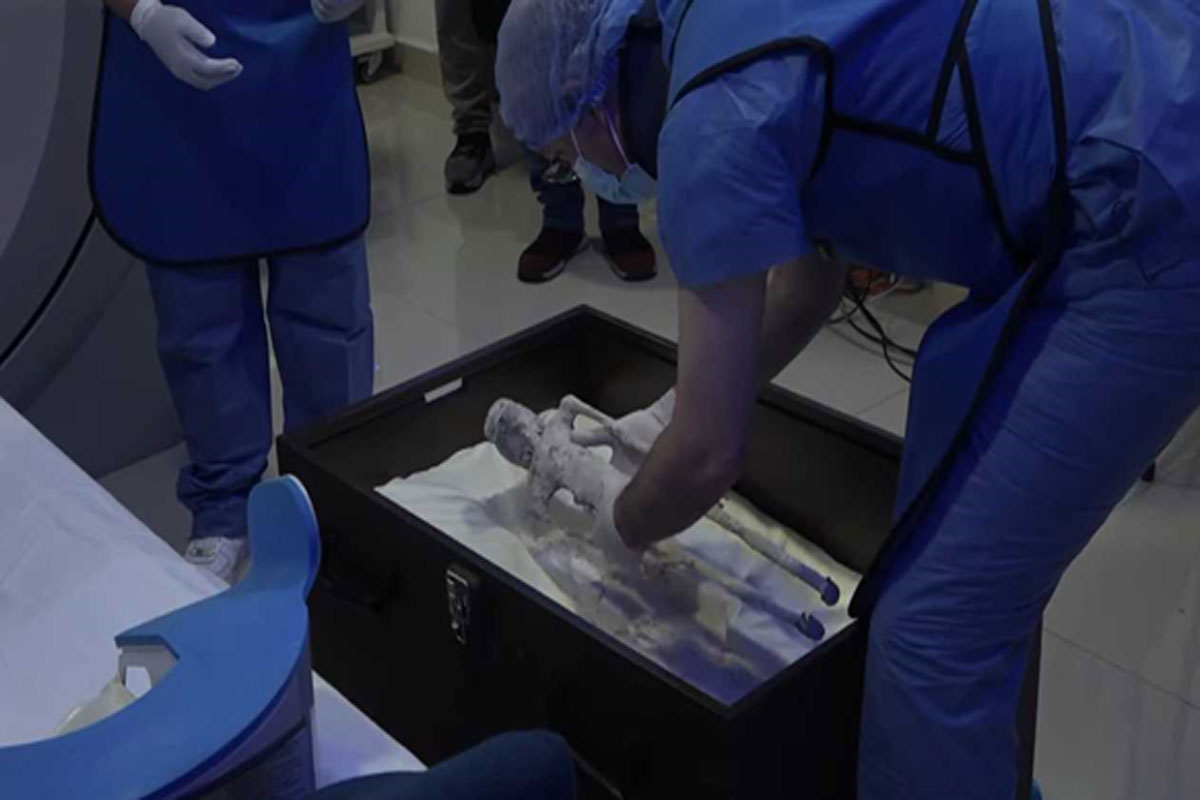
The Vatican Has Launched An Exorcism Course Due To The Apparent Uprise In Demonic Possession
Jodi Smith
Demonic possessions are on the rise, and Italy is going berserk. The country is experiencing an uptick in individuals claiming to be possessed by demons. So, obviously, more and more trained Catholic priests are needed for exorcisms.
Since there are not enough priests to keep up with demand, the Vatican offers week-long exorcism training courses in Vatican City. If you ever wanted to learn how to be an exorcist, the time is now. Destiny is calling.
These exorcism courses will likely leave you with life-long memories about demonic presences and lost souls. Before you make a final decision to take one, though, you may want to know more about what’s happening in Italy.
________________________________________
• The Church Promotes Exorcism Seminars
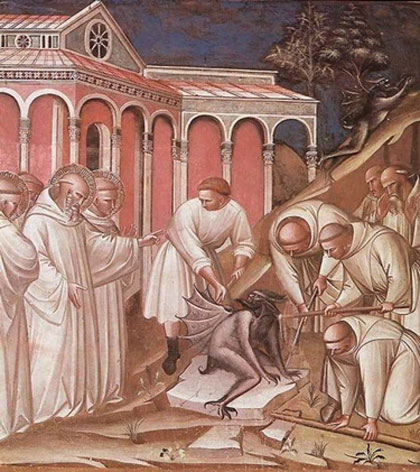 Photo: Spinello Aretino / WikiCommons / Public Domain
Photo: Spinello Aretino / WikiCommons / Public Domain
The Catholic Church first put exorcism guidelines on paper in 1614, later revising them in 1999. The rules were published in a leather-bound text that will likely be the basis for a six-day exorcist training in April 2018. The course aims to outline the signs of possession, the reasons why the media shouldn’t be involved with exorcism rituals, and the instructions for the actual casting out.
Reportedly, the course will discuss why consultation with mental health physicians is important, but the actual ritual hasn’t changed.
• Priests Perform Over 500,000 Exorcisms A Year
Vatican City priests are involved with exorcisms quite frequently. In fact, Friar Beningo Palilla claims that there are usually half a million yearly requests for exorcisms in Italy. He believes that the number has grown in the last few years because people are less spiritual. Allegedly, people also dabble in the occult more often.
Palilla says the priesthood doesn’t typically prepare the clergy for exorcism, though. Many younger clergy members aren’t even interested in the practice.
• The Church Thinks That Fortune Tellers Are Responsible For The Demonic Boom
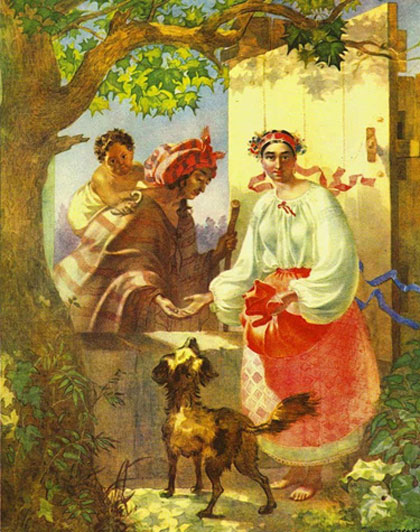 Photo: Taras Shevchenko / Wikimedia Commons / Public Domain
Photo: Taras Shevchenko / Wikimedia Commons / Public Domain
Consumer organization Codacons reported in 2014 and 2017 that Italians were dealing with the economic crisis by visiting proprietors of the paranormal for guidance. In fact, it’s estimated that 13 million Italians visit occult healers, gurus, fortune tellers, and tarot card readers every year.
Friar Beningo Palilla says that these practices invite evil and demonic forces.
• Unlicensed Exorcists Earn Hundreds of Dollars
 Photo: Philippe Alès / Wikimedia Commons / CC BY-SA 3.0
Photo: Philippe Alès / Wikimedia Commons / CC BY-SA 3.0
France has an estimated 100 licensed exorcists, but many of them are inactive. To combat this shortage, independent exorcists have popped up to perform demon-unloading services.
Many of these freelance exorcists charge exorbitantly for their services, although the Catholic Church doesn’t recommend them. An hour of house purification may cost about $178, while specialty farmhouse cleanses may cost about $616.
However, the Church warns that unlicensed exorcists could make grave mistakes. They may even be scam artists.
• Exorcists Must Triple In Number To Deal With Demand
The International Association of Exorcists claims to have over 400 Vatican-approved demon busters. However, that number can’t begin to even address the 500,000 yearly possessions in Italy. Countries like France, Mexico, and the United States also report increases in demonic experiences.
In order to satisfy the demand for exorcisms, the Church hopes to triple the number of certified exorcists.
• Pope Francis Wants Priests To Recommend Exorcists When Necessary
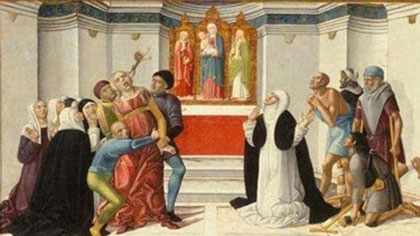 Photo: Girolamo di Benvenuto / Wikimedia Commons / Public Domain
Photo: Girolamo di Benvenuto / Wikimedia Commons / Public Domain
Pope Francis is vocal about many progressive views, but he also voices support for the teaching of exorcism rites.
The pope even held a Vatican training seminar in March 2017 that touched on exorcism. Priests were taught how to listen to confessions.
They were also lectured about the importance of taking parishioners’ words seriously, especially if demonic possession was mentioned.
Though the pope recognizes that mental disorders may be involved with alleged possessions, he told priests not to delay in referring people to exorcists if the need is genuine.
• American Priests Face This Problem As Well
The collection of Roman Catholic Churches in America also faced a shortage of qualified exorcists. To combat the issue, the Church hosted a 2010 two-day training course in Baltimore, MD.
About 56 bishops and 66 priests, attended the Conference on the Liturgical and Pastoral Practice of Exorcism. A New York archbishop’s assistant also took part in the event. Prior to 2010, only about six priests in the US were licensed to perform exorcisms. In 2016, the number rose to 21.
• The Vatican Formally Recognizes An International Association Of Exorcists
 Photo: Unknown / Wikimedia Commons / Public Domain
Photo: Unknown / Wikimedia Commons / Public Domain
Italian priest Pauline Gabriele Amorth started holding meetings with other exorcists to share experiences and tips concerning the art of exorcism. In 1990, Amorth founded the official International Association of Exorcists. His exorcism conferences started in 19994.
The Vatican officially recognized Amforth’s group in 2014. Over 400 exorcists from about 30 countries work together to rid the world of demonic presences. Italy houses 240 members of the Association.
• ‘The Exorcist’ Movie Is Surprisingly Accurate
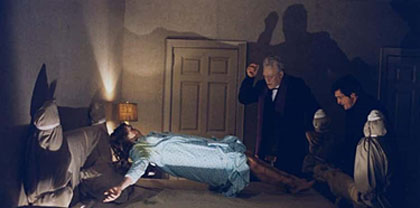 Photo: The Exorcist/Warner Bros
Photo: The Exorcist/Warner Bros
The Exorcist director, William Friedkin, told attendees at a 2016 Cannes Film Festival master class that he filmed a real Catholic exorcism.
Allegedly, he received a special invitation. Friedkin claimed that the ritual he witnessed was very similar to his classic 1973 film.
The Vatican denied this event, suggesting that another Catholic organization sent the invitation. However, the guidelines for exorcism are undeniably similar to the actions of the priests in the Hollywood film.
Holy water is sprinkled; the priest lays hands on the victim; a crucifix is employed; and the the demon is commanded to leave.
• Prospective Exorcists Must Seek Assistance From Mental Health Experts
When exorcisms were first recognized by the Catholic Church and the Vatican in 1614, the Latin text did not mention psychological ailments.
When the guidelines were rewritten in 1999, priests were told to seek the help of non-religious experts before requesting permission to perform an exorcism.
In fact, the new exorcism primer encourages priests to speak with psychologists and other mental health providers who have a “sense of spiritual reality” so that mental maladies can be treated appropriately.
• Some Priests Think Exorcists Should Have Apprenticeships
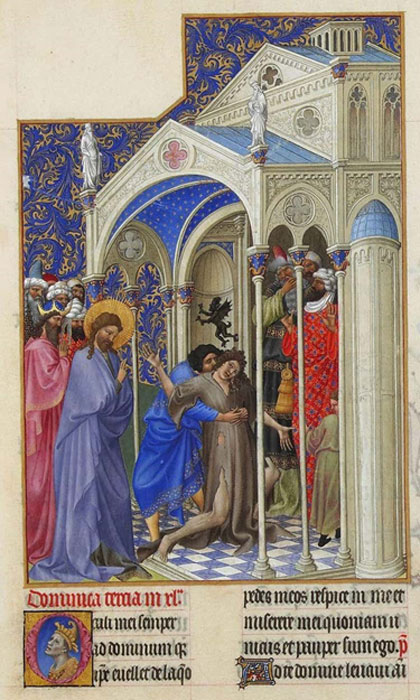 Photo: The Limbourg Brothers / Wikimedia Commons / Public Domain
Photo: The Limbourg Brothers / Wikimedia Commons / Public Domain
Sicilian priest Benigno Palilla believes that priests should serve an apprenticeship with a more experienced exorcist after learning about exorcisms.
Senior priests already have a say in whether or not exorcisms can be performed at all, so it makes sense to train alongside those skilled in interpreting the signs of possession. Some priests, such as Vincenzo Taraborelli, have been performing exorcisms for decades. Their insights and experiences could prove invaluable to a new generation of exorcists.
• Demonic Possessions Aren’t The Only Concerns
Some priests have only seen a handful of exorcisms. However, they warn that there are three other demonic activities that may require the attention of a clergy member.
Infestation occurs when a demon moves items around, frightening people with noises.
Vexation occurs when a demon gets physical with a victim, leaving bruises, scratches, and other marks on the body.
Obsession occurs when a demon mentally attacks a victim, forcing the afflicted to have evil thoughts.
• Exorcisms Are Surprisingly Common
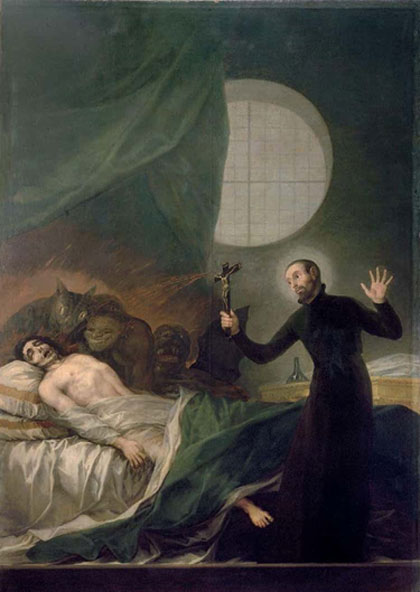 Photo: Goya / Wikimedia Commons / Public Domain
Photo: Goya / Wikimedia Commons / Public Domain
Bishop Thomas Paprocki believes that all exorcisms are either major or minor. Major exorcisms require Church approval because the exorcists speak directly to the demon with the authority of God.
Minor exorcisms are surprisingly common and include baptism. Paprocki says that minor exorcisms involve “rejecting Satan and all his works.”
ranker.com











